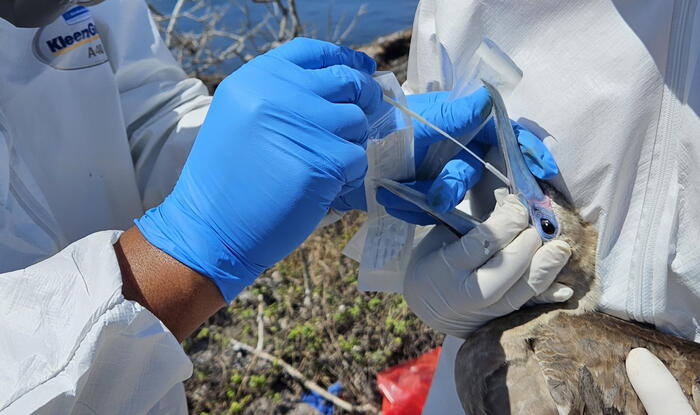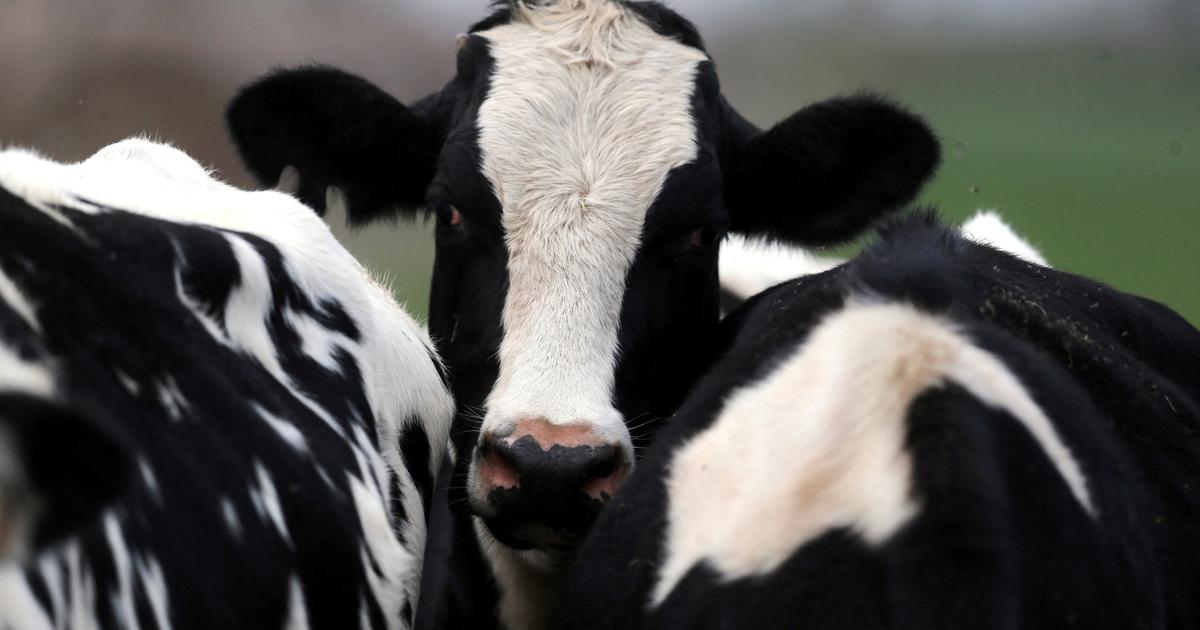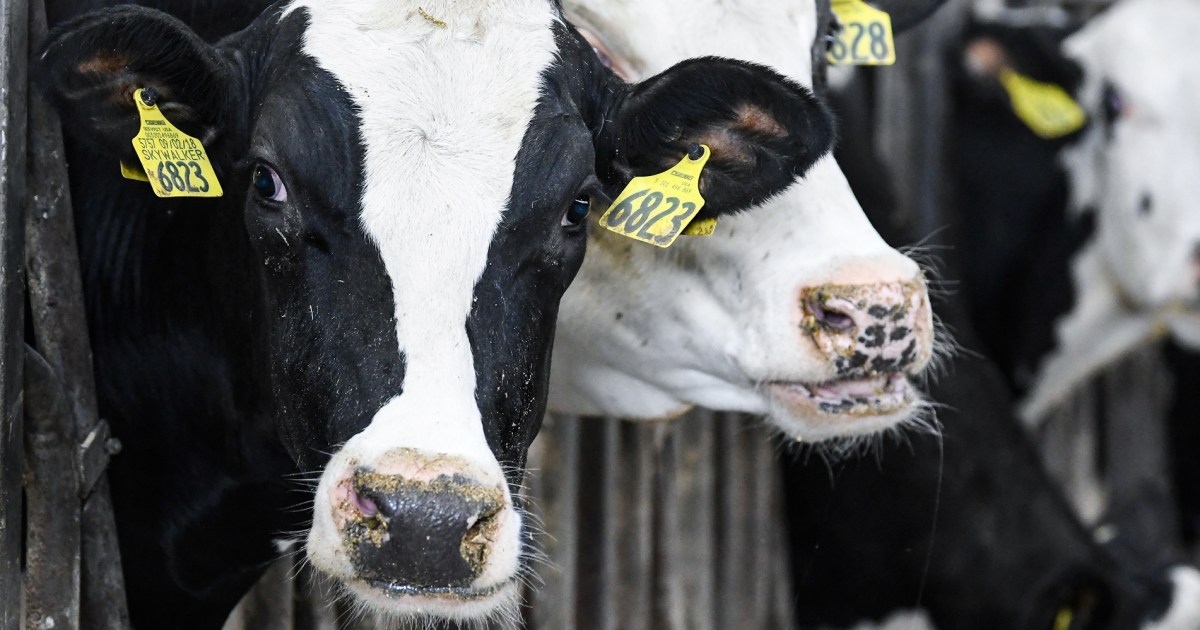Which strategy is better: act to control and solve the problem once it appears or prevent its appearance?
More than twenty international scientists started from that question when analyzing the pandemic caused by the new coronavirus and environmental degradation.
And in a report prepared under the umbrella of IPBES, the acronym in English of the Intergovernmental Platform on Biodiversity and Ecosystem Services, a scientific body linked to the UN, they conclude that, as the saying goes, in this case it is more appropriate to prevent than cure.
In particular, it would be up to 100 times less expensive to prevent pandemics than to try to stop their effects once they have started.
“Our current focus is trying to detect new diseases early, contain them, and then develop vaccines and therapies to control them.
Clearly, in the face of covid-19, with more than a million human deaths and huge economic impacts, this reaction-based approach is inappropriate, ”these experts conclude.
The study estimates the cost to the economy of pandemics and other zoonoses, diseases that make the leap from the animal world to the human being, at a trillion dollars a year.
The report warns that scientific studies indicate that there are around 1.7 million currently "undiscovered" viruses in mammals and birds;
and of them “up to 850,000 could have the capacity to infect people”.
Specialists call for a structural change to stop environmental degradation.
For example, increasing protected areas and reducing the exploitation of regions of high biodiversity to reduce “contact between wildlife, livestock and humans”.
These experts - including specialists in veterinary medicine, medicine or biology - point out that scientific evidence shows that pandemics are becoming more and more frequent.
In addition, they recall that their appearance, linked to various microbes transported by animal reservoirs, is "totally driven by human activities."
That is, caused by “the same global environmental transformations that drive biodiversity loss and climate change,” such as deforestation, agricultural expansion and intensification, and wildlife trade and consumption.
“To this must be added the consumption patterns of society: humanity consumes more and more of our global environment and that translates into loss of biodiversity, but also causes a greater risk of emerging zoonoses and pandemics such as covid- 19 ”, adds Thijs Kuiken, one of the study authors and a member of the virology department at the Erasmus University Medical Center in Rotterdam (the Netherlands).
Specialists point out as one of the most pernicious activities the changes in land use linked to deforestation, urbanization processes and the growth of agriculture and livestock.
"The change in land use is a factor of global importance for pandemics and caused the appearance of more than 30% of the new diseases reported since 1960," they detail.
Among many other recommendations, these experts propose "to include taxes or levies on meat consumption, livestock production and other forms of high-risk pandemic activities."
The other big black point they focus on in their report is the illegal trade and consumption of wildlife.
They warn that "agriculture, trade and the consumption of wildlife" have caused the loss of biodiversity and emerging diseases, "including SARS and covid-19." And they also warn that both the legal and illegal trade of Wild fauna can be a factor in the appearance of new diseases. "Around 24% of all species of wild terrestrial vertebrates are traded globally", they contextualize.
Economic impacts
In addition to human loss and suffering, scientists put more than a trillion dollars in "annual economic losses" caused by pandemics and other zoonoses.
However, they estimate the costs of pandemic preventive strategies at between 40 and 58 billion annually - for example, reducing wildlife trade and changes in land use.
The report acknowledges that the true economic impact of covid-19 is still uncertain and that it will depend on the effectiveness of the vaccines.
But it points to an initial estimate of between $ 8 and $ 16 trillion for last July.
To implement this prevention strategy that avoids human and economic losses, IPBES experts put a series of recommendations on the table.
“Many have to do with changes in land use to prevent deforestation, the effects of mining, the way food is produced for livestock.
If we reduce these practices, we lower the level of risk of another pandemic occurring and biodiversity is restored, ”sums up Kuiken.
These specialists ask that a supranational scientific council for pandemic prevention be set up so that countries can make executive decisions.
They propose, for example, that governments commit to achieving goals within an international agreement to limit the causes that trigger pandemics.
And they recommend "reducing or eliminating" from the wildlife trade "species at high risk of disease."
Kuiken also considers it decisive to involve citizens: "It is important to know more about the origin of pandemics and be aware of what is consumed, for example, the use of skin in coats or reach a responsible consumption of meat."
Unai Pascual, environmental economist at the BC3 Basque Center for Climate Change and co-author of the study, warns that zoonosis occurs mostly in tropical and subtropical areas.
“But what happens thousands of kilometers away does not mean that the rest of the world, Spain included, is not responsible due, in part to our consumption patterns in a globalized world.
As with the problem of climate change, if, for example, we take companies to China, CO2 is emitted there, but it affects us all.
Similarly, consumer patterns around the world imply effects on biodiversity at a great distance, but as the pandemic shows, they go as far as here ”, he clarifies.
The expert gives as an example the destruction of tropical forests that are great reservoirs of biodiversity and which he considers "the shield" so that germs remain in their habitat.
But, he adds, “if we take away their habitats from the animals that carry these germs, they have to go out and get closer to man.
And we do the destruction of biodiversity unconsciously, but we must be aware that we are generating impacts on biodiversity far away but that they translate into impacts on human health right here, ”.
He assures that it is a matter of time before another pandemic occurs and, to avoid it, “we must be clear about the interconnection between climate change, loss of biodiversity and zoonoses.
IPBES experts believe it is possible to overcome the "era of pandemics" - now is the sixth since 1918, they say.
But they warn that "without preventive strategies, pandemics will emerge more frequently, spread more rapidly, kill more people and affect the world economy with a more devastating impact than ever."
In his opinion, it is proven that the answer cannot be a posteriori as it has been until now: “Covid-19 shows that this is a slow and uncertain path, and while the world population waits for vaccines to be available, human costs increase by lives, endured diseases, economic collapse and lost livelihoods ”.
To know the most important news on Climate and Environment of EL PAÍS, sign up here for our
weekly
newsletter
.
Follow the Climate and Environment section on
and









